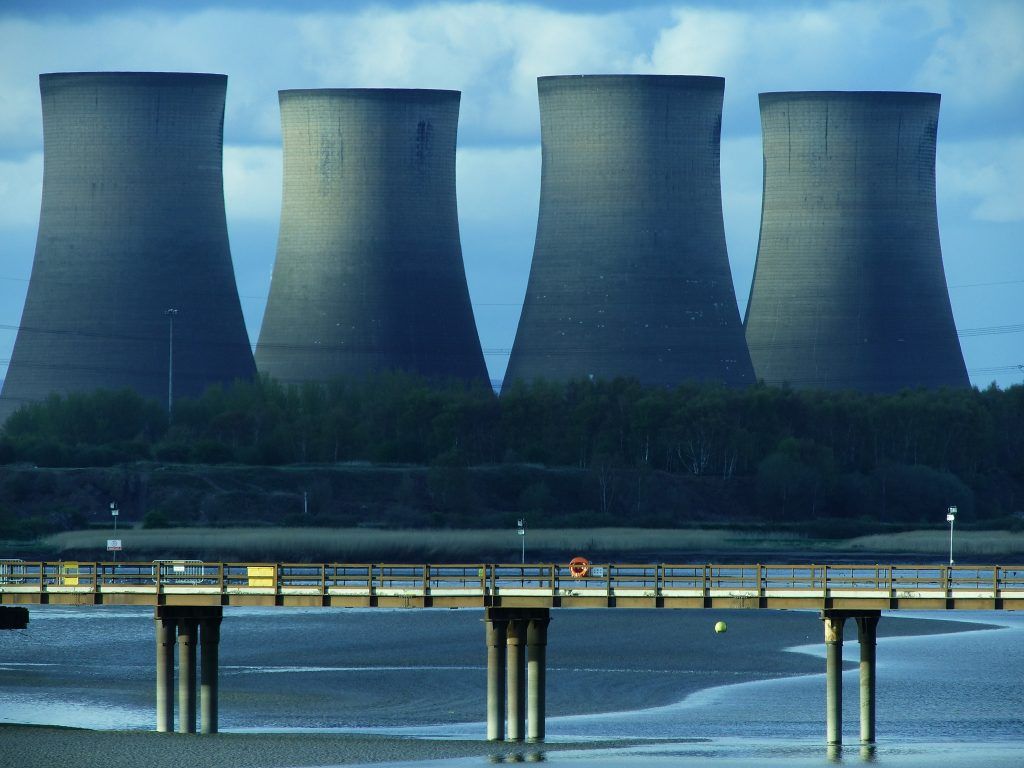Exporting power reactors: No way to fight proliferation
By Victor Gilinsky, Henry Sokolski | November 16, 2017
 Part of the bridge to zero emissions?
Part of the bridge to zero emissions?
In an August 2017 report, former Energy Secretary Ernest Moniz argues for federal subsidies to prop up the US nuclear power industry on the novel grounds that the industry is vital to our national security. One of his principal conclusions is that to have an effective nonproliferation policy we need to be selling lots of reactors internationally. The conclusion is dead wrong but, unfortunately, it’s also influential.
The current energy secretary, Rick Perry, picked up the argument. In October 12 testimony, he told Congress that “we have to support this industry,” because, among other things, it is important to the success of our nonproliferation policy.
What kind of reactor exports might this entail? The Energy Department’s acting assistant secretary for nuclear energy, Edward McGinnis, told an International Atomic Energy Agency (IAEA) conference in Abu Dhabi on November 1 that the United States wants “to spur exports of nuclear energy plants and equipment, including to the conference’s host nation UAE and Saudi Arabia.” That, after all, is where the export opportunities are—in the Middle East, Asia, and Africa, among countries taking their first steps into nuclear energy. Most don’t have the required financial resources and would need massive loans. Some, like Saudi Arabia, or perhaps Turkey, appear to have more on their mind than electricity generation.
The trouble is that power programs based on the most common type of nuclear power plant, the light water reactor, give a country a large leg up on creating a nuclear weapons option if that is what it wants. As a result, more nuclear reactors in more countries increase proliferation risks. Whatever the advantages of this technology, nonproliferation is not one of them.
Unfortunately, the IAEA, the putative nonproliferation watchdog at whose conference McGinnis announced the intent to ramp up US nuclear exports, is eager to see an expanding commitment to nuclear energy. The IAEA performs a vital service by conducting international inspections, but judging from the director general’s speeches, its heart is in promoting nuclear power, especially in developing countries. From a nonproliferation point of view, that is unhelpful.
The IAEA has for years presented overblown nuclear power growth estimates. These, in turn, have been used by US nuclear export promoters in and outside the Energy and State departments to paint a picture of vast nuclear export opportunities for US industry. Rather than producing tighter export controls, as Moniz suggests, they became arguments for loosening the export rules, so US vendors can compete more easily with foreign ones.
Exaggerated estimates of future nuclear capacity also feed the notion that worldwide growth of nuclear power is inevitable, and that, realistically, nonproliferation policy can only moderate the further spread of nuclear weapons at the margin. But if this was ever true, it is no longer so. There is nothing inevitable about the pace of nuclear expansion. World energy economics is in flux. A number of advanced European countries have rejected nuclear power. Japan’s program has been sharply curtailed in the wake of the Fukushima accident. Both Taiwan and South Korea have pledged to phase out their nuclear programs. And, after the cost of new US construction has soared out of sight, there are not going to be any large nuclear plants ordered in the United States. It looks as if nuclear power’s best days have come and gone.
Regrettably, almost all academics and nongovernmental organizations in the field still buy into the “inevitable” thesis, and accept the Atoms-for-Peace mantra that has guided US policy on nuclear power expansion for decades. But nonproliferation policy does not have to be limited to fighting a rear-guard action to slow down the spread of nuclear weapons. Instead of relying on tenuous arguments to spread problematic nuclear plants, say in the Middle East, we should be guiding these countries to modern, non-nuclear energy solutions. The notion of nuclear energy as the preferred form and the gateway to national development, as enshrined in the Nonproliferation Treaty and supported by the IAEA, is an archaism.
As for the seriousness of the current national security arguments to prop up nuclear industry, it is telling that the proponents don’t suggest that the subsidies to protect national security should come from the defense sector.
Not much in the way of American manufacture can come of the arguments on increasing our exports of nuclear power plants as there are effectively no longer any American nuclear reactor exporters. Westinghouse, now bankrupt, is owned by Toshiba. GE’s nuclear export business is in partnership with Hitachi, which has the controlling share. But our government’s, and specifically our Energy Department’s, continued proselytizing in favor of a worldwide commitment to nuclear power not only does not contribute to the success our nonproliferation policy, it undermines it.
Together, we make the world safer.
The Bulletin elevates expert voices above the noise. But as an independent nonprofit organization, our operations depend on the support of readers like you. Help us continue to deliver quality journalism that holds leaders accountable. Your support of our work at any level is important. In return, we promise our coverage will be understandable, influential, vigilant, solution-oriented, and fair-minded. Together we can make a difference.
Keywords: nuclear energy, nuclear exports
Topics: Analysis, Nuclear Energy, Nuclear Weapons
















